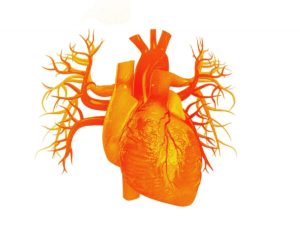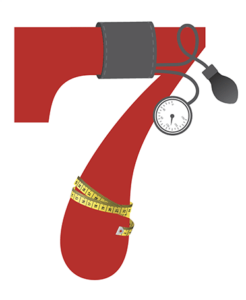Cardiovascular Disease
Wake-up Call from the World Health Organization
New data from the World Health Organization (WHO) represent a wake-up call for health and exercise professionals. The title of the WHO’s press release says it all: Nearly 1.8 Billion Adults at Risk of Disease from Not…
Secrets of Super Agers
What’s their secret? Why do Super Agers, people who live past 90, have such long lives? What can you do to live a longer, healthier life?
Men’s Health Research Review
Men: Are you exercising and eating healthfully but not losing the weight you want? The good news is that there are more benefits to these two habits than just weight loss.
Megan Senger, professional fitness writer/editor and fitness instructor based in North Carolina, has summarized a few studies that center on men’s wellness, with comments on what the findings may mean for you.
Advice on Salt Targets Heart Disease
While sodium is rampant in fast food, pizza and deli items, it can also be hiding in surprising amounts in everything from bread to ketchup to cereal. As a result, the average sodium intake of Americans is about 3,400 milligrams daily, mainly from commercial sources like restaurant meals and packaged foods. The latest advice on limiting salt intake comes in a new report released by the National Academies of Sciences, Engineering, and Medicine that ties lower sodium intake to less risk of chronic disease.
Evening Cardio Training and Hypertension
In another clinical trial examining the impact of time of day on training effects, researchers found that cycling at moderate intensity for 45 minutes three times per week in the evening decreased clinical and ambulatory blood pressure in 50 middle-aged sedentary men with hypertension more than either morning training or stretching (the control group).
Plant-Based Diets Can Help Reduce Heart Failure Risk
Plant-based diets are associated with a lower risk of heart failure in adults without known heart disease, while Southern diets consisting of more fried and processed foods and sweetened drinks are associated with greater risk, according to a study published in the Journal of the American College of Cardiology (2019; 73, [16], April 30). The study looked at the association between five dietary patterns and risk of heart failure.
Pushups and Heart Health
Active middle-aged men who were able to do more than 40 pushups had a significantly lower risk of heart disease events during a 10-year follow-up period than men who could do fewer than 10 pushups, according to a study reported in JAMA Network Open (2019; doi:10.1001/jamanetworkopen.2018.8341).
More Long-Term Aerobic Fitness Benefits
New research adds to growing evidence that current cardiovascular fitness levels affect heart disease risks as far ahead as 9 years in the future. “Even among people who seem to be healthy, the top 25% of the most fit individuals actually have only half as high a risk [of heart disease] as the least fit 25%,” said principal investigator Bjarne Nes, PhD, of the Norwegian University of Science and Technology, Trondheim, Norway.
Debating Alcohol Consumption and Risk
In our September 2018 issue of Fitness Journal, we reported on an international study published in The Lancet that found any level of drinking above 100 grams of alcohol (3.75 ounces) per week increases heart disease risk and shortens lifespan.
Resistance Exercise and Heart Health
“People may think they need to spend a lot of time lifting weights, but just two sets of bench presses that take less than 5 minutes could be effective [in reducing heart disease risks], according to study author DC Lee, PhD, associate professor of kinesiology at Iowa State University, Ames.
Researchers analyzed data collected over 19 years from more than 12,000 male and female adult participants in The Aerobics Center Longitudinal Study conducted at the Cooper Clinic™ in Dallas.
Exercise Program Can Restore Heart Muscle Health
Good news for people who have delayed starting a training program. If the following exercise regimen is begun before age 65, studies show that the heart muscle can regain elasticity, reversing stiffening that can develop from lack of physical activity. Cardiologists from the University of Texas Southwestern Medical Center and Texas Health Resources in Dallas have been studying how to promote health and elasticity of the heart muscle.
Does Sodium Intake Concern You?
Salt: Enemy of the heart or wrongly convicted?
For years, health experts have been beating us over the head about the importance of scaling back our salt intake for the sake of our heart health. Based on research findings, the World Health Organization recommends a daily consumption of less than 2,000 milligrams of sodium—one teaspoon of salt—as a preventive measure against cardiovascular disease. The American Heart Association is even stingier with the salt shaker—just 1,500 mg of sodium a day for individuals at risk of heart disease.
What A PURE Diet Looks Like
Perhaps a heart-healthy diet has room for steak, after all.
Boosting the Brain Health of Older Adults
Exercise is good for promoting brain health. Indeed, the right kind of exercise can protect against the natural decline of brain.
Healthy Habits Save Lives
A healthy lifestyle—including being physically active, eating a nutritious diet and not smoking—plays a significant role in living a longer, healthier life. This conclusion emerged from an observational study of 7,000 men and women aged 25–74 who were periodically assessed over a 35-year period. Researchers based the analysis on the American Heart Association’s definition of ideal cardiovascular health. This definition includes absence of clinical heart disease, together with positive outcomes on “Life’s Simple 7” health metrics:
Something’s Fishy With Fish Oil
Don’t like fish? Well, you might not be able to turn to the supplement aisle to get the same benefits for your heart. A Cochrane report exploring 79 randomized trials of more than 112,000 adults (both with and without heart disease) showed that increasing omega-3 intake, mainly from fish oil pills taken for at least 1 year, did not significantly prevent heart attacks, strokes or deaths in general.
Getting to the Heart of Pre-Exercise Screening
A preparticipation health screening helps trainers and prospective clients safely launch into an exercise program. When the American College of Sports Medicine updated its pre-exercise screening guidelines 3 years ago, it made one major shift: It stopped recommending the use of a tool to assess cardiovascular disease risk.
The Optimal Amount of Exercise for Heart Health
Arterial stiffness, which increases with sedentary living, is associated with higher risk of heart disease. It’s well known that exercise can help, but how much—or how little—is enough?
“While near-daily, vigorous lifelong (>25 years) endurance exercise training prevents arterial stiffening with ageing, this rigorous routine of exercise training over a lifetime is impractical for most individuals,” noted the authors of a new study, which aimed to determine the least amount of exercise necessary to reduce arterial stiffness.
Research Update: The Value of Exercise for Women’s Health
Fitness pros have a unique opportunity to take a leadership role by guiding their female clients toward a healthier, movement-oriented lifestyle. This women’s health research update discusses contemporary scientific findings you can use to educate your clients and plan up-to-date programs.
Soccer Is Medicine
Just in time for the World Cup™, researchers have found that football, or soccer as it’s known in the United States, is medicine. So go ahead and encourage clients to play it in their spare time! “Football is broad-spectrum medicine for patients with hypertension, type 2 diabetes and other lifestyle diseases,” according to Peter Krustrup, PhD, professor and head of the Sports and Health Sciences Research Unit at the University of Southern Denmark. Practicing soccer includes endurance training, high-intensity interval training and strength training, the scientists noted.



















